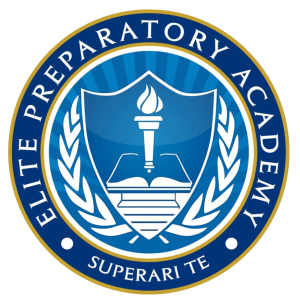Course Outcomes and Standards
This page contains a table with the 9th Grade English Language Arts Learning Outcomes cross-referenced to educational standards.
|
Category |
Learning Outcome |
CCSS Reference(s) |
|
Reading Literature (RL) |
Students analyze the development of themes and central ideas over the course of a text. |
RL.9-10.2 |
|
Students cite strong and thorough textual evidence to support analysis of what the text says. |
RL.9-10.1 |
|
|
Students analyze complex characters, their motivations, and how they interact with others. |
RL.9-10.3 |
|
|
Students determine the meaning of words and phrases in context, including figurative language. |
RL.9-10.4 |
|
|
Students analyze how an author’s choices affect the structure and meaning of a story or drama. |
RL.9-10.5 |
|
|
Students compare how different works address similar themes, topics, or historical events. |
RL.9-10.9 |
|
|
Reading Informational Texts (RI) |
Students determine central ideas of informational texts and analyze their development. |
RI.9-10.2 |
|
Students cite strong evidence from informational texts to support analysis and conclusions. |
RI.9-10.1 |
|
|
Students analyze the structure of arguments and the effectiveness of reasoning and evidence. |
RI.9-10.8 |
|
|
Students evaluate how authors use language to convey purpose and tone in informational texts. |
RI.9-10.4, RI.9-10.6 |
|
|
Students assess the validity of arguments and how authors build ideas and arguments logically. |
RI.9-10.5, RI.9-10.8 |
|
|
Writing (W) |
Students write arguments to support claims with clear reasons, evidence, and organization. |
W.9-10.1 |
|
Students write informative/explanatory texts to examine complex ideas with clarity and precision. |
W.9-10.2 |
|
|
Students write narratives that develop real or imagined experiences with effective techniques. |
W.9-10.3 |
|
|
Students produce clear and coherent writing appropriate to task, purpose, and audience. |
W.9-10.4 |
|
|
Students use technology to produce and publish writing and collaborate with others. |
W.9-10.6 |
|
|
Students conduct short and sustained research projects based on focused questions. |
W.9-10.7 |
|
|
Students gather relevant information from multiple authoritative sources to support analysis. |
W.9-10.8 |
|
|
Speaking and Listening (SL) |
Students initiate and participate effectively in collaborative discussions on grade 9 topics. |
SL.9-10.1 |
|
Students integrate multiple sources of information to make informed discussions and decisions. |
SL.9-10.2 |
|
|
Students evaluate a speaker's point of view, reasoning, and use of evidence and rhetoric. |
SL.9-10.3 |
|
|
Students present information clearly, concisely, and logically for specific purposes. |
SL.9-10.4 |
|
|
Students use digital media to enhance presentations and convey information effectively. |
SL.9-10.5 |
|
|
Language (L) |
Students use context clues and reference materials to determine meanings of unknown words. |
L.9-10.4 |
|
Students interpret and analyze figurative language, word relationships, and nuances in meaning. |
L.9-10.5 |
|
|
Students demonstrate command of the conventions of standard English grammar and usage. |
L.9-10.1 |
|
|
Students demonstrate command of the conventions of standard English capitalization, punctuation, and spelling. |
L.9-10.2 |
|
|
Students apply knowledge of language to make effective choices for meaning and style. |
L.9-10.3 |
